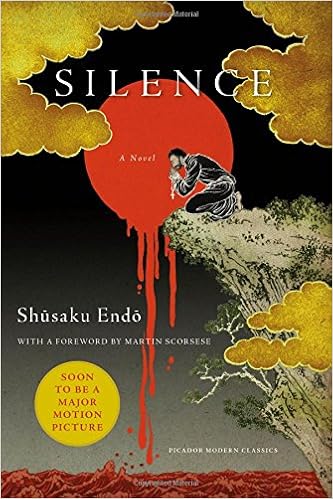Linda was a woman of hope. In a world of staggering
problems, she lived as a believer in hope, a bearer of hope, and a builder of
hope. Listen to the scriptures that she picked for today – hope sings from them.
And this hope is not optimism or idealism. It has nothing to do with wishing or
fantasy but seeks to name reality and revere truth. Hope, I believe, is what
Linda would like for me to share with you today. But don’t lose hope – I also
know that she would want me to be brief.
1.
Hope
walks in reality.
Hope doesn’t enter the valley of the
shadow of death and pretend it’s Disneyland. It doesn’t speak of a life with
God and imagine puppy dogs and fairy tales. I once heard someone describe Christianity
and belief in God as a means for weak-minded people to hide from the tragedies
of life. Maybe there are such people out there but I haven’t met many and that person
certainly never met Linda Lindberg. Hope as wish-fulfillment is also not how the
Bible speaks. The texts of scripture Linda chose speak of hope amidst fear,
hardship, being crushed and even terrified. Hope is a struggle. So you are on the
path of hope not when you abandon reality or refuse to live in this world with
all its physical and psychological pain. You are on the path of hope when you
stare hardship wide-eyed in the face, mourn its pain, seek its destruction, acknowledge
real enemies, and yet keep on walking – if even with a limp. Linda was my dear
friend. On one of my visits toward the end of her life I went to encourage her
and pray with her. While I was there I did what they teach you in seminary you
are never supposed to do – cry (not a polite kind of crying but more
blubbering). After I left, she told her husband that my crying was her favorite
part of my visit. Linda always understood that speaking about hope often demands real tears and expressions of genuine pain.
I once saw Linda stand right where
I’m standing and share about deeply painful mistakes she had made in the past
in front of this entire congregation. It was one of the bravest things I’ve
ever seen done in my life. And she could do it because of hope. Friends, the
good news that I want to share with you today is that you may look at your life
with an unflinching realism. You can sit there right now in your sadness and
say, “This isn’t right. She shouldn’t be gone. Death is tragic and painful. And
I miss Linda so much.” You can confess all that is wrong with yourself and the
world. Hope reminds us that in the presence of a God, sometimes the most
important thing we can do is to show Him our wounds.
Hope does not bathe idly in
the sun swinging from a hammock. Kind David is right, “it walks through the valley
of the shadow of death.” I’m reminded of the fact that if something is
functional or has power in English we say, “It works.” However, in French when
something is functional you say, “It walks [Ça
marche].” Linda’s life right to the very end reminds us that hope isn’t
silly or meaningless. It’s not nostalgic nor blind. No, in the face of real
struggle and hardship, “Hope walks.”
2.
Thankfully,
hope is not about
you.
Of course, nothing would make Linda
more furious at me than for me to stand up here and tell you that you should be
like her, or that her hope rested in her own belief to handle life herself. No,
Linda’s life was not hope itself but a sign of hope – pointing you to where you
should look, to whom you should trust.
The passage from Jeremiah acknowledges
that hope comes from God and connects to God. It’s the “because” of
Lamentations – “Because of the Lord’s
great love we are not consumed.” Hope always has an object, always demands the
preposition “in.” Our Christian hope is not in ourselves, not in church, not
even in doctrine. Our hope is in the one whom Linda loved and followed – in Jesus
Christ. Our hope, in other words, is a historical story, rooted in reality, of
Jesus of Nazareth, who spoke of the kingdom of God, forgave sinners, healed the
sick, challenged religious leaders, spoke of justice for the poor and compassion
for the broken-hearted. He acted out the hope that had always been attributed
to God. And the world and political powers killed him. But even the grave
couldn’t keep him down. Hope, it turns out, is unkillable.
Listen again to Paul’s list of what
cannot separate us from the love of Jesus: death, life,
spiritual powers or earthly rulers, present circumstances or fearful
projections of the future. Jesus faced all of this, he conquered death in all
its forms and nothing can defeat what he has defeated.
One of Linda’s friends is Larry Farwell.
Larry likes to hike and loves to speak and write about people’s experience in the
wilderness. On one occasion he was encouraging me to spend 24 hours on a hike
by myself. When I asked him what would happen if I got lost he casually
responded, “I know the path and these woods like the back of my hand. You can’t
get lost.” The point my friends is that these things can’t separate you from
Jesus because he knows the path, he’s already walked it. He knows the forest of
pain and struggles intimately. He conquered it. You can’t get lost.
This means, Paul tells us in Romans,
that “nothing” can separate you from the love of God. That word “nothing” is an
interesting word in the Greek. It literally means no one, nada, not anything,
no pain or tragedy, or illness, or terror – it literally, figuratively,
metaphorically, means “nothing” can separate you from Jesus. And so at Linda’s
urging I invite you – to place your trust, your energy, your life, your hope,
in Him.

 I recently encountered a few on Facebook. In my feed a Christian friend from college recounted a recent visit
to a doctor’s office in which an “awful mother” with “no parenting skills”
despondently sat while her dirty children ran around the waiting room with no
regard for anyone present. She painted a supposedly frightful scene and others were quick to
chime in – devouring this woman with all manner of judgments while they lauded
their own behavior. Foolishly, I waded in to the zombie horde and made the
following suggestion: “Friends, I don’t think I would want one moment to judge
me as a parent. I have made some foolish mistakes and would hate for any one of
them to summarize who I was.”
I recently encountered a few on Facebook. In my feed a Christian friend from college recounted a recent visit
to a doctor’s office in which an “awful mother” with “no parenting skills”
despondently sat while her dirty children ran around the waiting room with no
regard for anyone present. She painted a supposedly frightful scene and others were quick to
chime in – devouring this woman with all manner of judgments while they lauded
their own behavior. Foolishly, I waded in to the zombie horde and made the
following suggestion: “Friends, I don’t think I would want one moment to judge
me as a parent. I have made some foolish mistakes and would hate for any one of
them to summarize who I was.”  Shusaka Endo’s historical
fiction, Silence, offers an
interesting case study about how to read the Bible in order to love our
neighbor. It’s about 17th-century Jesuit missionaries in Japan, who are forced
to encounter a deeply problematic and painful issue: apostasy. Apostasy
means the renunciation of one’s faith.
Shusaka Endo’s historical
fiction, Silence, offers an
interesting case study about how to read the Bible in order to love our
neighbor. It’s about 17th-century Jesuit missionaries in Japan, who are forced
to encounter a deeply problematic and painful issue: apostasy. Apostasy
means the renunciation of one’s faith.